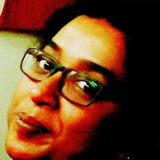On Autism Awareness Day, a range of products crafted by some special people
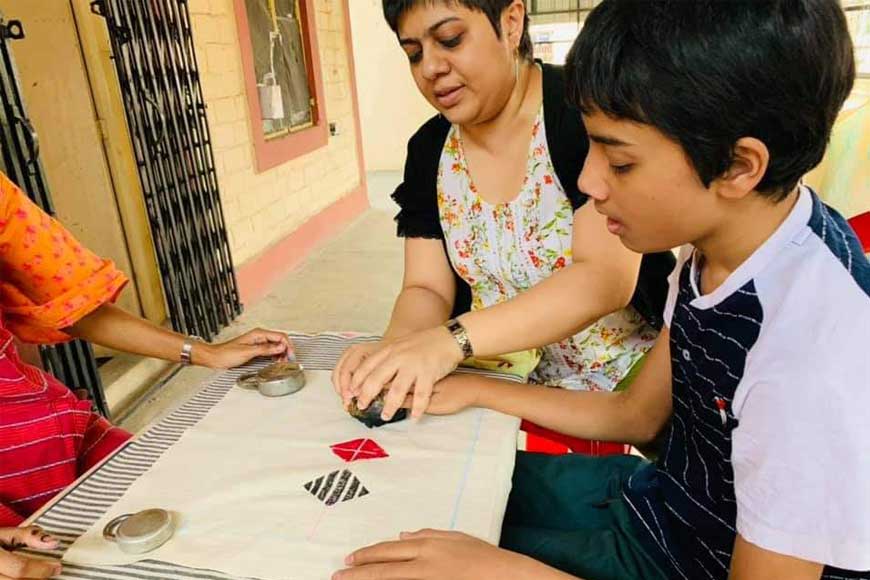
Before the Covid-19 pandemic became part of our lives, some of you may have chanced upon a small café near Charuchandra College on Lake Road in south Kolkata called Sip n Bite. If yes, you would have immediately spotted what makes it stand out. Of the thousands of cafés dotting the city, this is perhaps the only one run entirely by a group of differently abled young people, with conditions ranging from autism and Down’s Syndrome to other cognitive disorders. Only those who have visited the café will know what a fantastic job the youngsters do.
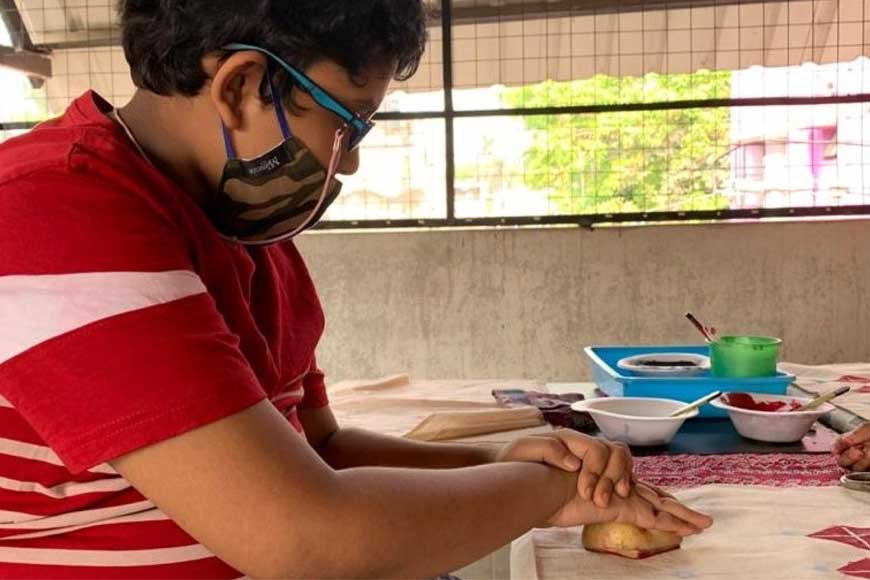
Briefly, under the label Charkha, TKS are marketing a whole bunch of lifestyle accessories created entirely by the differently abled, ranging from extra large towels to specially designed charging cables to tote bags to organisers.
Transcendent Knowledge Society (TKS), an organisation for the education, empowerment and equality for people with disabilities, is the NGO behind the café, and its founder-president Amrita Roy Chowdhury has now come up with a new idea, which she calls her “new baby”, to mark World Autism Awareness Day, celebrated annually on April 2. In fact, TKS is observing the whole of April as Autism Awareness Month.
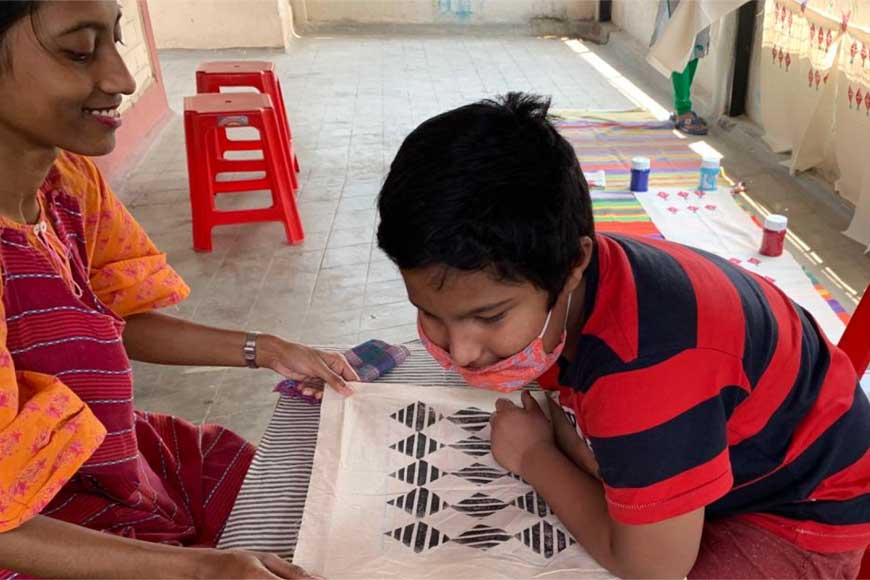
Briefly, under the label Charkha, TKS are marketing a whole bunch of lifestyle accessories created entirely by the differently abled, ranging from extra large towels to specially designed charging cables to tote bags to organisers. The coordinating team is led by Aditi Santra and her daughter Shivangini Santra. Proceeds from the sales will go towards meeting the expenses of the specially abled, for whom the pandemic has been particularly difficult to negotiate.
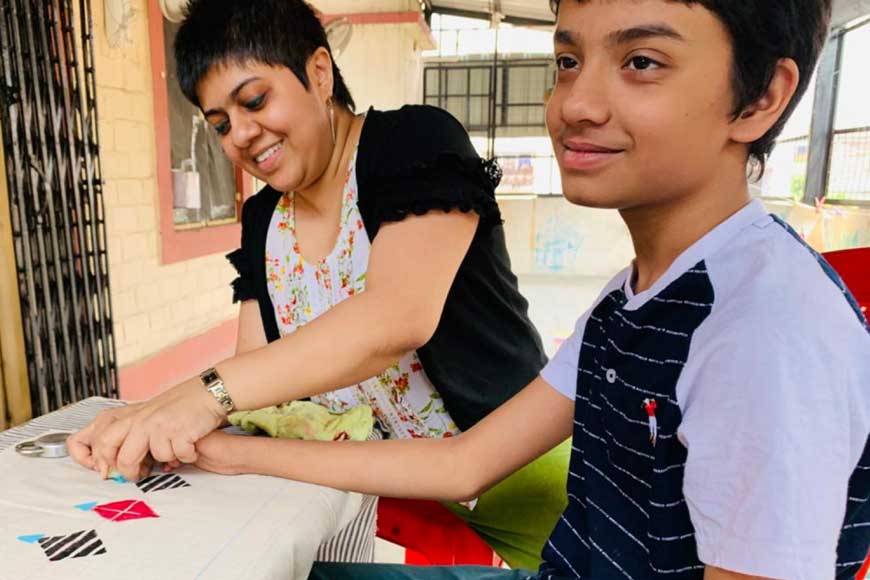
As a term, ‘autism’ is perhaps more familiar to us today than it was, say, even a decade ago. However, there is no one kind of autism, or any of the other conditions that occur within the autism spectrum, such as Asperger’s Syndrome or Attention Deficit Hyperactivity Disorder (ADHD).
“We found that the products are also useful to those with acquired disabilities, either through accidents or through illness, which is a bonus,” says Amrita. She adds that the designs and colours used in the products appeal to those with cognitive disabilities, and the repetitive act of block printing, for example, soothes them.
For those unaware of autism and other cognitive disabilities, or why certain activities help calm them down, or their need for space which has been sorely lacking during the pandemic, here are a few facts:
â— One in 160 children has an autism spectrum disorder (ASD)
â— ASD begins in childhood and tends to persist into adolescence and adulthood
â— While some people with ASD can live independently, others have severe disabilities and require life-long care and support
â— Evidence-based psychosocial interventions, such as behavioural treatment and parent skills training programmes, can reduce difficulties in communication and social behaviour, with a positive impact on well-being and quality of life for persons with ASD and their caregivers
â— Interventions for people with ASD need to be accompanied by broader actions for making physical, social and attitudinal environments more accessible, inclusive and supportive
â— Worldwide, people with ASD are often subject to stigma, discrimination and human rights violations. Globally, access to services and support for people with ASD is inadequate
The source for all of the above is the World Health Organisation (WHO) website. As a term, ‘autism’ is perhaps more familiar to us today than it was, say, even a decade ago. However, there is no one kind of autism, or any of the other conditions that occur within the autism spectrum, such as Asperger’s Syndrome or Attention Deficit Hyperactivity Disorder (ADHD). Further, any spectrum disorder can be high- or low-functioning, so while some people with autism can function more or less on their own, others who have trouble speaking, for instance, would require a little extra help.
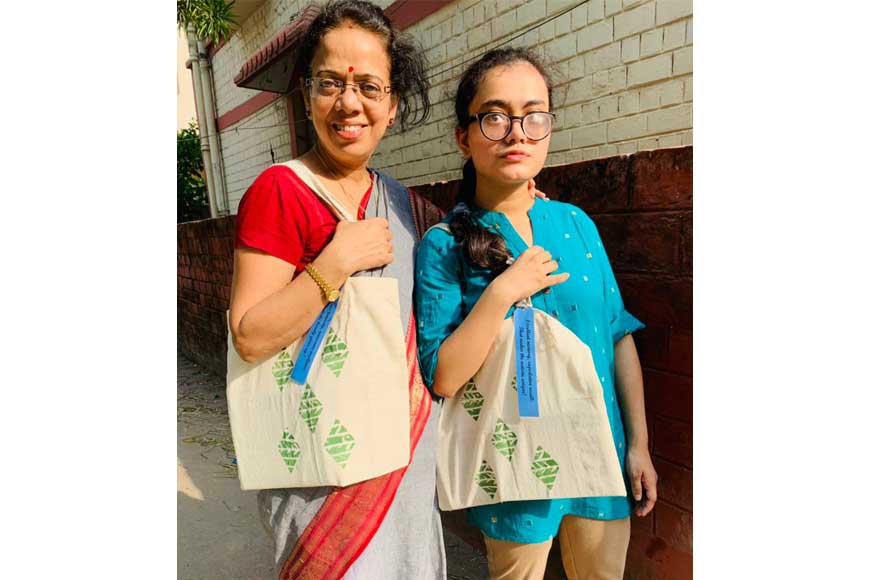 Aditi Santra, the leading supervisor and her daughter Shivangini Santra, the young leader of the team
Aditi Santra, the leading supervisor and her daughter Shivangini Santra, the young leader of the team
The purpose of World Autism Awareness Day is to make more people aware of the need to integrate the differently or specially abled into the mainstream, by showing them what people who apparently have trouble with social interactions can actually achieve given the right guidance and love. Some of the most famous people on the autism spectrum include Albert Einstein, Steve Jobs, Nikola Tesla, and William Butler Yeats, to name just a very few.
*You can order the products from Charkha online at www.manasghorai.com or Bongmade






